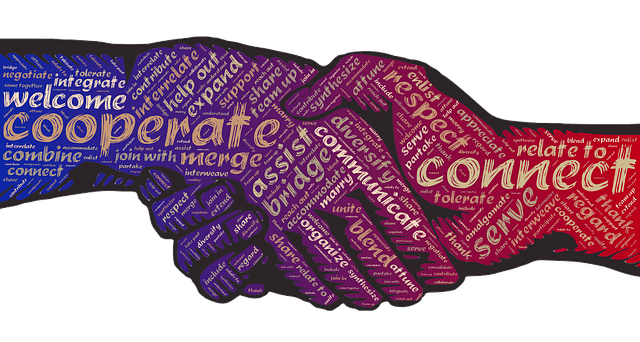Developing positive relationships and sustaining them is intrinsic to professional success and well-being in life. Whether you are a senior manager or a new, young recruit, managing staff and getting along well with colleagues and your boss respectively will affect your prospects and confidence in the workplace.
With family, friends and partners too, open conversation and dialogue is a key to communication rather harbouring ill-feeling and resentment when you find yourself on a bumpy road.
Since the start of the pandemic relationships may well have changed. Technology and communicating at a distance may have played a greater part in how you relate to colleagues, family and friends.

Conversely, you may have spent more time in your home environment with those you live and share with. You may have become closer to some people, and more distant from others.
You can greatly enhance your relationships by learning to be more assertive.
This doesn’t mean making demands and telling people what to do, but by assertive behaviour and communication; expressing your feelings honestly and appropriately, putting across your opinions – and listening when others express theirs.
Assertiveness is about self-respect and respect for others, seeking ‘win-win’ outcomes that consider the hopes and concerns of all involved.
First ask yourself these questions. Do you:
1. frequently put yourself last in your relationships?
2. say “I don’t mind” when you do mind?
3. lack confidence with your boss, colleagues, friend or partner?
Seven suggestions
Assertiveness can help you deal with difficulties in relationships and prevent difficulties arising in the first place. Try these assertive tips:
1. Avoid aggressive commands like You should, ought, must, have to and can’t. Instead use the assertive “I” and express your feelings: I hope you will…or your opinion “I take the view that”, then ask them for their view “I’m keen to know your thoughts” and listen when they give them!
2. Avoid exaggerations and accusations “you never get things right” – this makes people defensive, paving the way for a row. Pointing the finger can only make matters worse.
3. How often do you say maybe, perhaps or possibly? These words often create confusion. Be confident, clear and polite about what you do and don’t want. Instead, saying “I’m too tired to meet tonight” is honest & the other person knows where they stand. It’s better than the “I’ll see how I feel” which leaves both of you uncertain.
4. Avoid putting yourself down. You and others will start to believe your self-deprecatory remarks. Comments such as “I’m not very good at this” can become a self-fulfilling prophecy, affecting both the way others perceive you and how you perceive yourself. Instead, make your presence felt by contributing your knowledge and ideas to colleagues and at meetings and help create a culture of teamworking.
5. Avoid putting others down might give you a momentary “high”, but will soon pull you down again. Neither will enrich any relationship, personal or professional. In the words of Author & Poet, Ella Wheeler Wilcox
The only folks we really wound, Are those we love the best.
We flatter those we scarcely know, We please the fleeting guest,
And deal full many a thoughtless blow, To those who love us best.
6. Putting yourself last, not making your needs known & thinking entirely about others’ needs seems generous. Ultimately, though, you could feel unappreciated, taken for granted and resentful. Make your own needs known as well as asking others what they want; take both into account.
7. Finally, supportiveness is vital to friendships, partnerships & working relations – so pretending to listen, interrupting or turning the conversation back to yourself won’t bode well. Poor listening is a key cause of misunderstandings. Good listening is a great skill and a quality ingredient of good relationships.

Remember to keep your identity in any relationship. Be aware of your views, your feelings and your wishes. Be realistic and recognise you cannot guarantee how people will respond. Using honest dialogue you can discuss difficulties, explore possible resolutions and hopefully build more open, enduring relationships.



